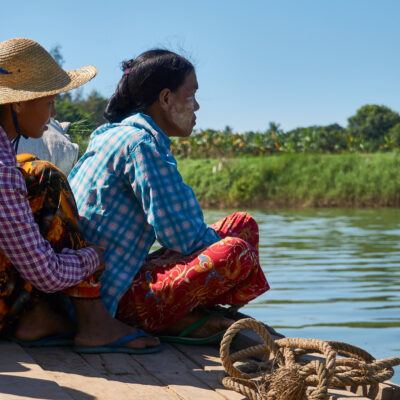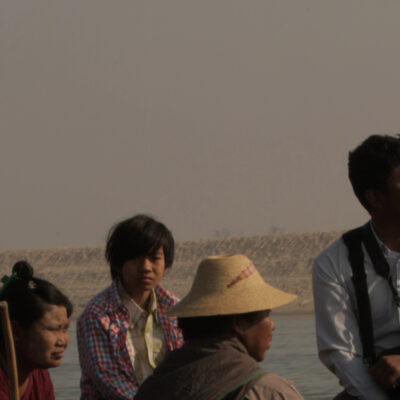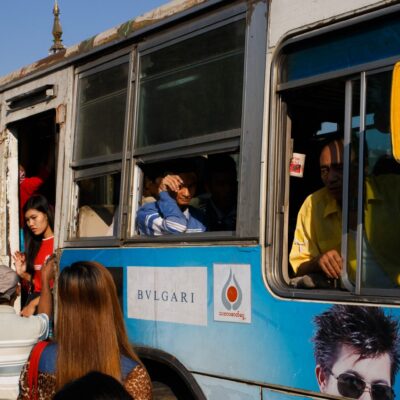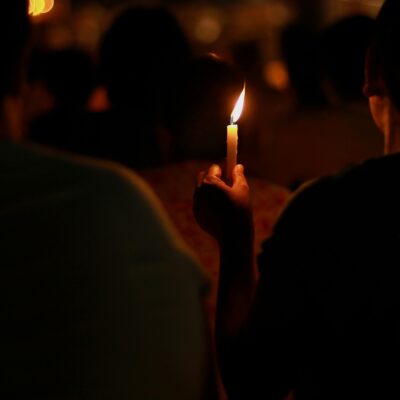Relations among ethnic groups in Myanmar, especially between majority Bamar and non-Bamar ethnic groups, have been challenging over a long time due to political conflict and social structures. In this article, I explore inter-ethnic solidarity among Myanmar university students after the military coup in 2021. The post-2021 situation has created many shared experiences among students from different ethnic groups and a new social value has developed, which combines commitment to change with sympathy and understanding. This change in mindset and solidarity is necessary for Myanmar to move forward with fair and just political system.
Background
Myanmar, formerly known as Burma, is experiencing long-standing conflict between ethnic armed forces and the military. The exact number of ethnic groups in the country is controversial, with the military government recognising 135 ethnic groups, but not some others including the Rohingya people which means they are denied citizenship. The majority ethnic group, Bamar, dominates the government, the military and police services, as well as the economy. Before independence from British rule in 1948, there were negative perceptions between the Bamar group and non-Bamar groups such as the Karen (Karen troops helped the British army quell anti-colonial movements in the 1930s towards the end of British rule). Since the 1950s there has been a long-standing civil war between ethnic armed organisations and military. Following independence, Bamar-dominated governments have exacerbated ethnic conflict by introducing assimilating policies, such as laws passed in 1961 by the government led by Prime Minister U Nu that made Buddhism the official state religion, which has led many ethnic groups to take up arms against the government.
None of the governments of Myanmar post-independence has achieved unity or social integration between ethnic groups. There have been three military coups since independence: 1962, 1988, and 2021. In February 2021, the army overthrew the elected government and declared martial law, accusing the elected government of electoral fraud in the November 2020 general election. Since then, amid widespread killings and arbitrary arrests, there have been armed uprisings including by majority Burmese people in the central part of the country.
Students and young activists have been involved in demonstrations throughout the country following the coup. Across several universities, including Yangon and Mandalay, thousands of teachers and students participated in demonstrations supporting the civil disobedience movement against the military, such as participating in anti-military ‘red ribbon’ campaigns in earlier months of the coup. A crackdown on anti-regime demonstrations in Yangon’s Tamwe Township on March 3, 2021 led to the detention of nearly 550 university students from many different ethnic groups protesting against the coup. Around 400 students were charged under section 505A of the Penal Code which has been one of the main laws applied by the regime to oppress freedom of expression and includes punishments of to three years imprisonment.
My findings on inter-ethnic solidarity amongst university students
The way the majority Bamar ethnic group perceives other ethnic groups and vice versa have been highly significant in relation to the longstanding ethnic conflicts in the country. But there has been a noticeable change in attitudes amongst university students since the military coup in 2021: my research indicates that many students have developed more positive and tolerant attitudes towards others.
I draw on reports by Non-Governmental Organisations (NGOs), mainstream media, and my own experience as a university student at the time of the coup. I also draw on five interviews conducted by me in Australia. Two interviews were with political experts: one is an author and political analyst who has worked in the field of Myanmar politics for more than 25 years and the second is a scholar who has over ten years of experience in peacebuilding, electoral politics, and youth activism in Myanmar. The other three interviews were with three Myanmar citizens who were university students at the time of the coup.
I recognise the limitations of this research and acknowledge that the findings do not represent the voices of all ethnic groups in Myanmar, or the perspectives of those not from one of the ‘official’ 135 ethnic groups in the country, such as Rohingya.
The interviews for this research were done between the 15th of September 2023 and the 5th of October 2023 via video call. I wanted both ‘expert’ interviews (i.e. political experts or scholars who can provide scholarly information) and personal interviews (students who had first-hand experiences of the coup within Myanmar during 2021). The interviews were all semi-structured.
Changing perceptions
A number of students were aware before the coup that ethnic groups were structurally oppressed and resources were unfairly allocated. However, the post-coup situation has created many shared experiences among students from different ethnic groups, and understanding between groups has been deeper since the coup. The development of a new social value, which combines commitment to change with sympathy and understanding, has occurred. A Bamar student interviewee stated:
‘After 2021, all ethnicities, and people of all ages come together, no matter who is majority or minority, and come along with solidarity.’ (Student 2, Sep 30, 2023)
Another student interviewee said many students now have shared experiences:
‘I was involved in the protests in Yangon ..and met with different kinds of ethnic groups.. like Chin ethnic groups. It was a long day of protests, we got hungry and thirsty, so we shared food and drinks with each other regardless of ethnicity no matter Bamar or ethnic group’. (Student 3, Oct 4, 2023).
Students also have shared experiences of oppression and fear perpetrated by the military such as being arrested, tortured, and imprisoned. In this context, such direct personal experience was more powerful than negative perceptions previously held by some about those from other ethnicities.
A political expert I interviewed stated that:
‘If you look at the demonstrations in Sanchaung township, Yangon, it was multi-ethnic demonstrations. Everyone was facing the same situation. This became a kind of glue that glued everyone together, because whoever they were, whatever ethnic background they had the same experience in those demonstrations in Yangon.’ (Expert 1, Sep 15, 2023)
The second expert interviewee also stated that the solidarity among people of different ethnic backgrounds was forceful when they encountered violence:
‘To revolutionise the army, we all must revolutionise together. Then the army will become one side and all the other people [will] stand on the other side.’ (Expert 2, Sep 20, 2023).
In addition, minority groups have seemingly begun to recognise that Bamar civilians are also oppressed by the military, despite the military largely being made up of personnel from the Bamar:
‘After the coup, ethnic nationals also came to see that this is just the army that is oppressing all the ethnic groups, races, and religions in order to maintain their power’. (Student 1, Sep 20, 2023)
A political expert who belongs to non-Bamar ethnic group agreed that after the coup there was better understanding that the army’s ideology of Bamar nationalism cannot be equated with the views of Bamar people generally:
‘After the coup, the military and Bamar are seen as distinct. The military is from the majority of the Burman ethnic group, but it does not represent the entire Burman nation.’ (Expert 2, Sep 20, 2023).
Another expert interviewee said:
‘Many people in Myanmar came to understand better the reasons why the ethnic armed groups were fighting against the regime and they came to understand more the kind of hatred of the Myanmar military because they shared that hatred.’ (Expert 1, Sep 15, 2023)
In the aftermath of the demonstrations and the brutal crackdown by the military, there has been greater attachment between individuals and social groups that previously had little common ground. As a result, a sense of reciprocal obligation and commitment to bringing about social change has grown among the protestors.
Commitment to social change
The greater solidarity between different ethnic groups has resulted in concrete action against the military. After experiencing the brutal military crackdown, some student activists have undertaken military training. Some have been trained by the Arakan Army, an anti-government armed ethnic group based in Rakhine, and the other ethnic armed groups have offered military training to student groups to help them form their own resistance groups. Moreover, the public was motivated when the National Unity Government (NUG) was founded in April 2021. Students have been participating in campaigns and protests demanding to acceptance for the NUG as the legitimate government of Myanmar, not the military.
The outcome of greater inter-ethic solidarity is also evident in fundraising, as noted by a student interviewee:
‘After 2021, if there is a fundraising project we, people of all races and religions get involved but, before the coup, if there was a fundraising event for the Kachin issue, only Kachin ethnic people got involved.’ (Student 1, Sep 20, 2023).
My research indicates that a new social value has developed, one that combines the commitment to change with sympathy and understanding in order to achieve social change, especially in relation to state building and governance in the future based on the values of unity, reconciliation, and sharing of identity.
One student interviewee said: ‘This coup underscores the need for calling for a more collective and united stand against the military, addressing these past grievances of injustice’. (Student 4, Sep 30, 2023).
One of the expert interviewees commented that:
‘Reconciliation between the various ethnic groups in terms of solidarity could somehow pave the way for mutual understanding, trust building and more like a united approach to address shared concerns and challenges’. (Expert 1, Sep 15, 2023)
He added that:
‘It’s vital to have different inter-ethnic communication and coordination, because Myanmar has not finished its state-building process. The Myanmar state is still incomplete’. (Expert 1, Sep 15, 2023).
To sum up, my research indicates that there has been a change in perception regarding ethnic difference among university students. This type of change is critical to the development of a democratic future for Myanmar. Better awareness and understanding of the country’s historical context and the situation of different ethnic groups is necessary for the creation of an inclusive democratic system. Having endured three years of oppression under the military coup, Myanmar people from many different ethnic groups are longing for a better and more inclusive governance in the future.
Main image: Peaceful pro-democracy protest against the military coup, Mandalay, February 2021. Credit: Author.




